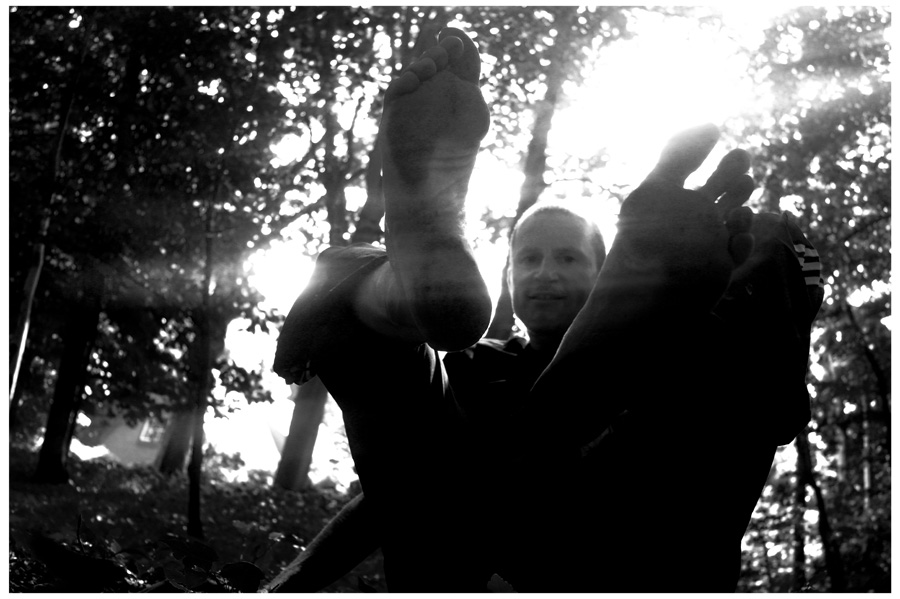
Above: FP 30K SAR BL training. Start it, do it, consolidate it.
“A cinematographer is a visual psychiatrist, moving an audience…making them think the way you want them to think, painting pictures in the dark.” Gordon Willis on Jon Fauer's 'Film and Digital Times'
"I’m Gordon Willis. I’m a Director of Photography." Gordon Willis, ASC
"The largest grip/electric truck the world has ever seen backed down Mr. Willis’ precariously steep driveway. One slip of the brakes, and his very large, beautiful house would be toothpicks. Gordon was watching, looking amused. “What’s with all this stuff?” he asked. Ken Perham, gaffer, explained that he was under strict orders from Tibor not to scratch, blemish or scrape anything,hence lighting with big HMI PARs from outside, with no heavy metallic feet touching the inside of the house. “Too complicated,” said Gordon. “Just bring in one Kinoflo.” So, one 4-bank 4-foot daylight Kinoflo it was. After it was all over, Gordon asked the electric crew to turn the light off. “Aha,” he said, “that’s better, isn’t it—no light at all.”" Jon Fauer in 'Remembering Gordon Willis, ASC'
" […] media violence is causing its citizens to accept violence as a viable alternative. Governments around the globe, try as they might, have not been able to [ protect ] citizens [ from media violence ]. And they will never truly be able to control violent crime unless they stop infecting their children. One common response to any concern about media violence is, "We have adequate controls. They are called the 'off switch'. If you don't like it, just turn it off." Unfortunately, this is a tragically inadequate response to the problem. In today's society the family structure is breaking down and even in intact families there is enormous economic and social pressure for mothers to work. Single mothers, broken homes, latchkey kids, and parental neglect are increasingly the norm. The worst thing about the "off switch" solution is that it is so blatantly, profoundly racist in its effect, if not its intent, […] Bronson James, a black Texas-based radio commentator whose show I was on, observed that this is identical to the genocidal process in which for centuries the white man used alcohol in a systematic policy to destroy the culture of the American Indian. For a variety of cultural and genetic reasons, the Indians were predisposed toward alcoholism, and we dumped it into them as a crucial part of the process that ultimately destroyed their civilization. The pumping of media violence […] today is equally genocidal. Media violence-enabling […] is the moral equivalent of shouting, "FIRE!" in a crowded theatre. As a result, murder is the number-one cause of death among black male teens, and 25 percent of all black males in their twenties are in jail, on probation, or on parole. If this isn't genocide, then it is close.
What makes the "off switch" solution so racist is that, if these murders and incarceration rates were happening to the sons of white upper- and middle-class America, you can bet that we would have seen some drastic action by now. Viewed in this light, I think that most individuals would agree that the "just turn it off' solution probably rates right up there with "let them eat cake" and "I was just following orders" as all-time offensive statements. In developmental psychology there is a general understanding that an individual must master the twin areas of sexuality and aggression (Freud's Eros and Thanatos) in order to have truly achieved adulthood. In the same way, the maturation of the human race necessitates our collective mastery of these two areas. In recent years we have made significant progress in the field of sexology, […] After nuclear holocaust, the next major threat to our existence is the violent decay of our civilisation due to violence-enabling in the [...] media." Dave Grossman in 'On Killing: The Psychological Cost of Learning to Kill in War and Society', chapter: 'Introduction to the paperback edition', Page 23 'Just Turn It Off, or Let Them Eat Cake' (first published in 1995)
Gordon Willis interview here: http://www.fdtimes.com/2014/05/20/remembering-gordon-willis-asc/